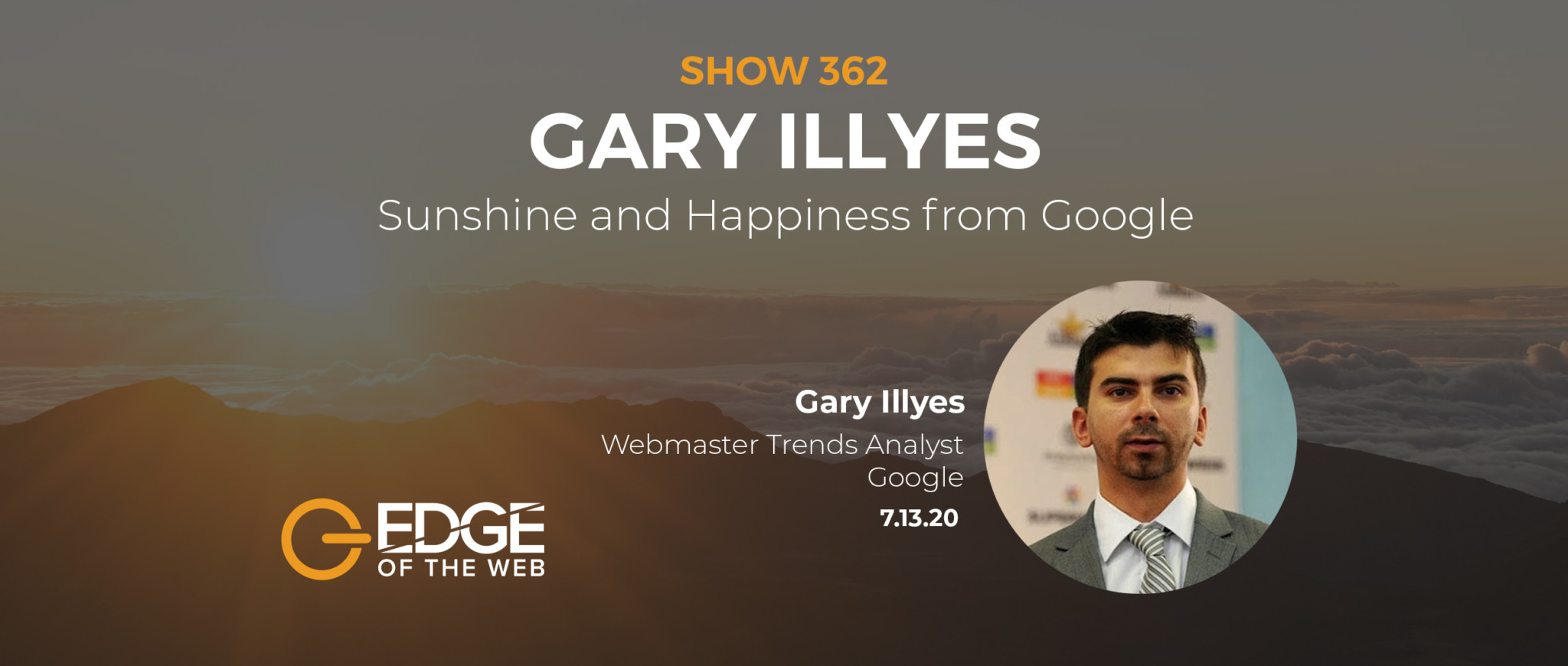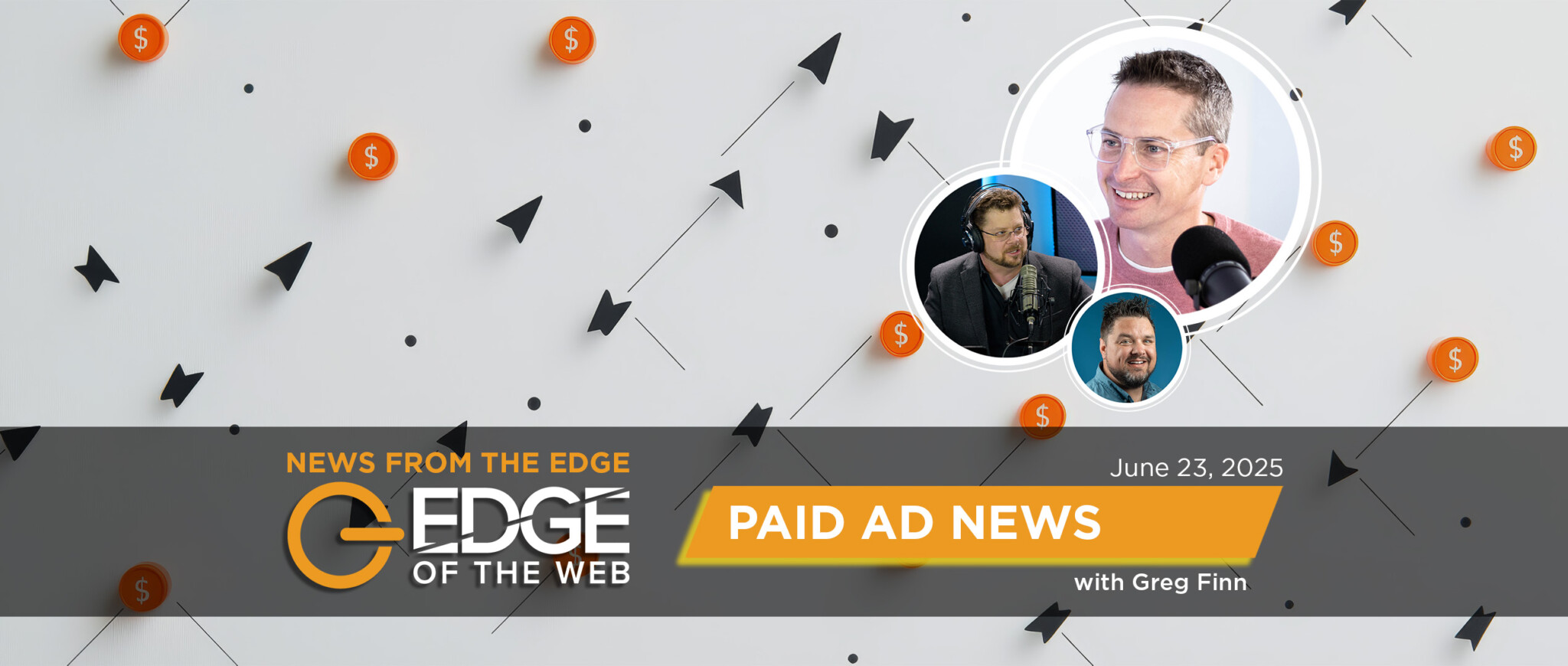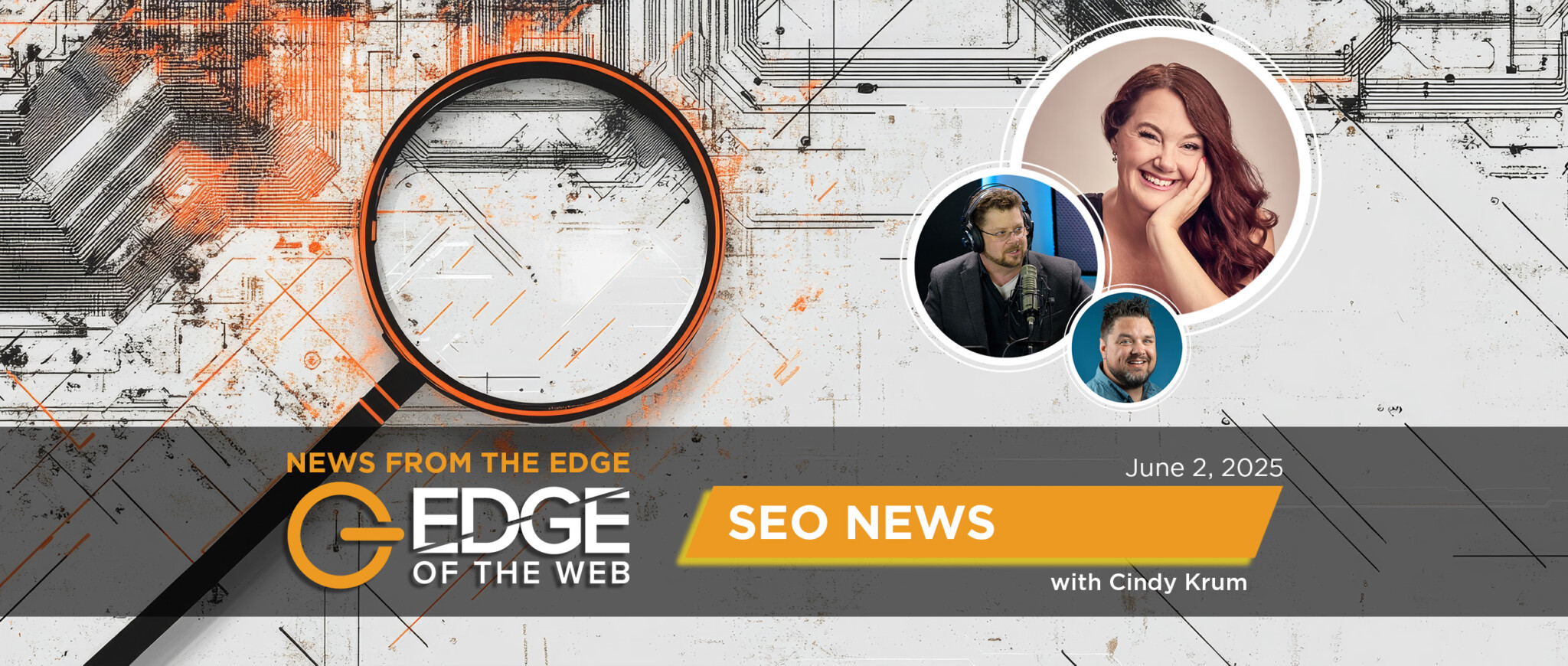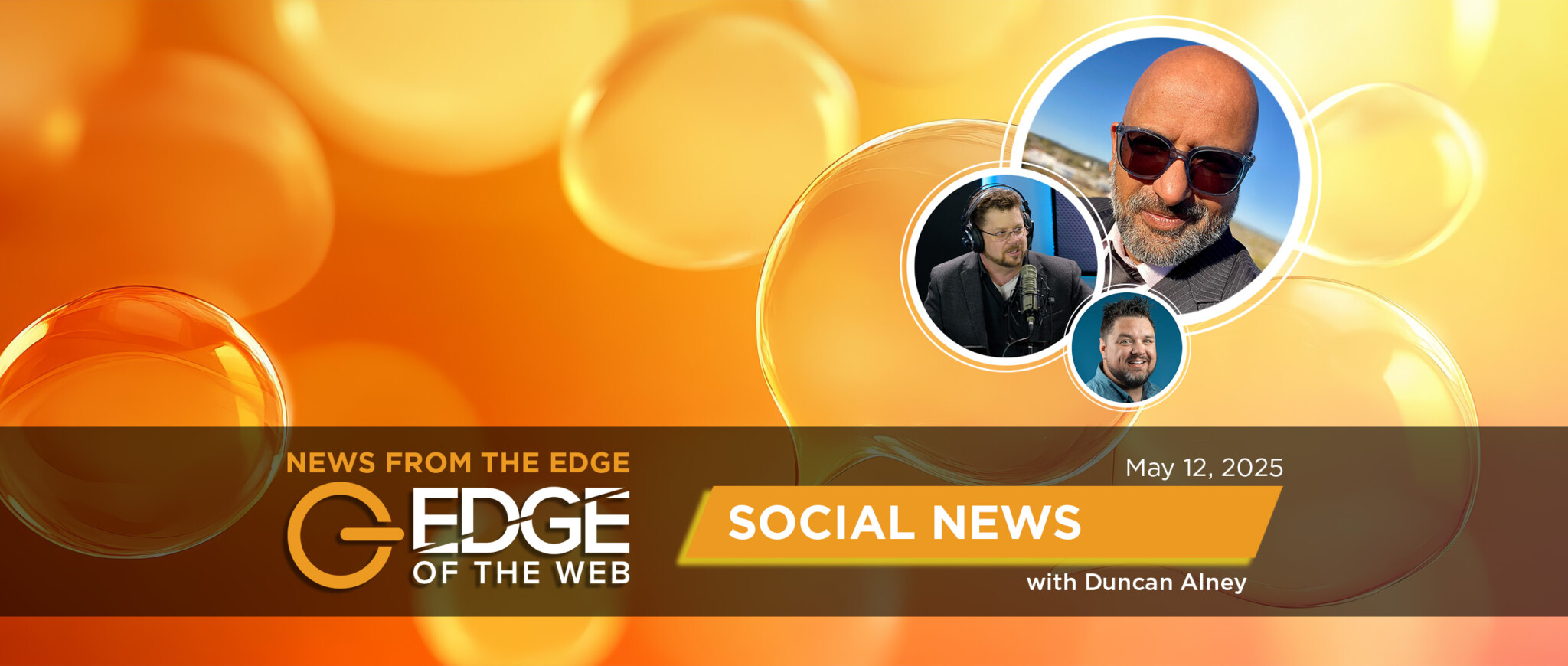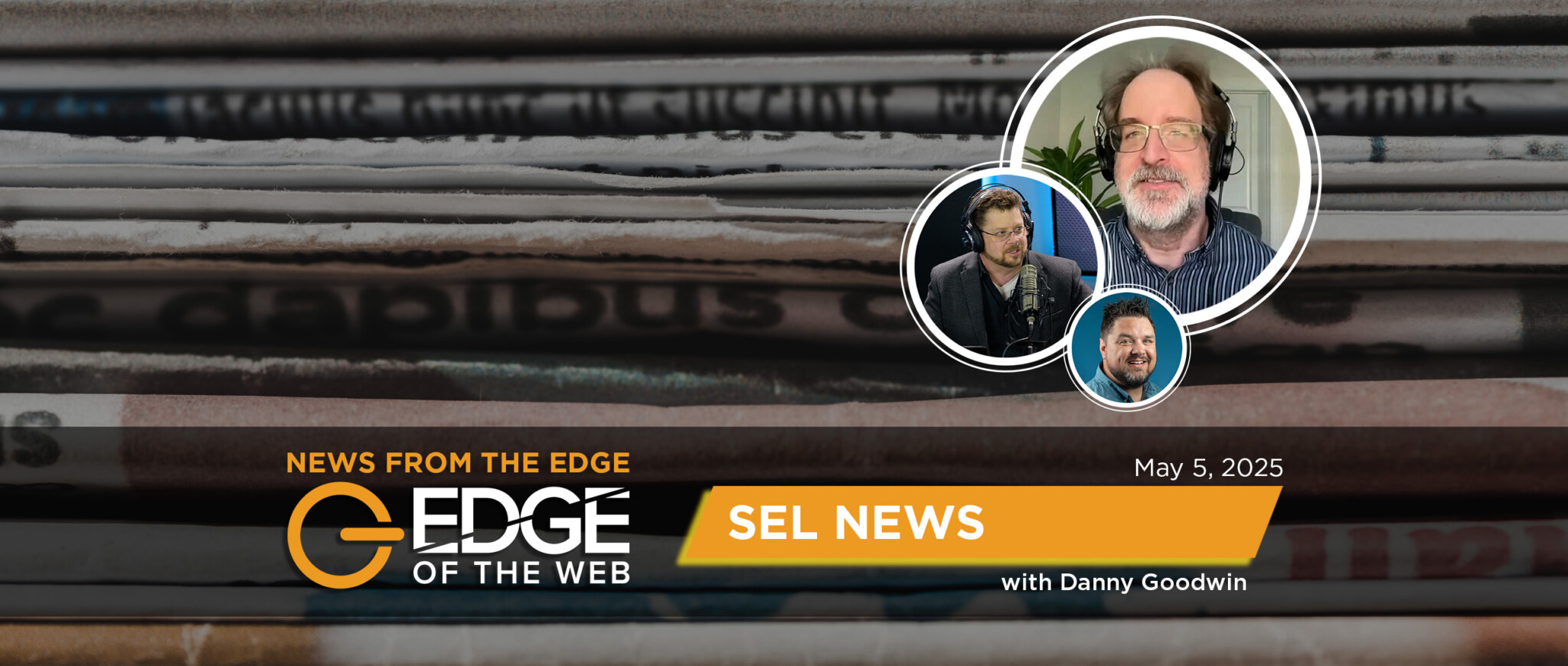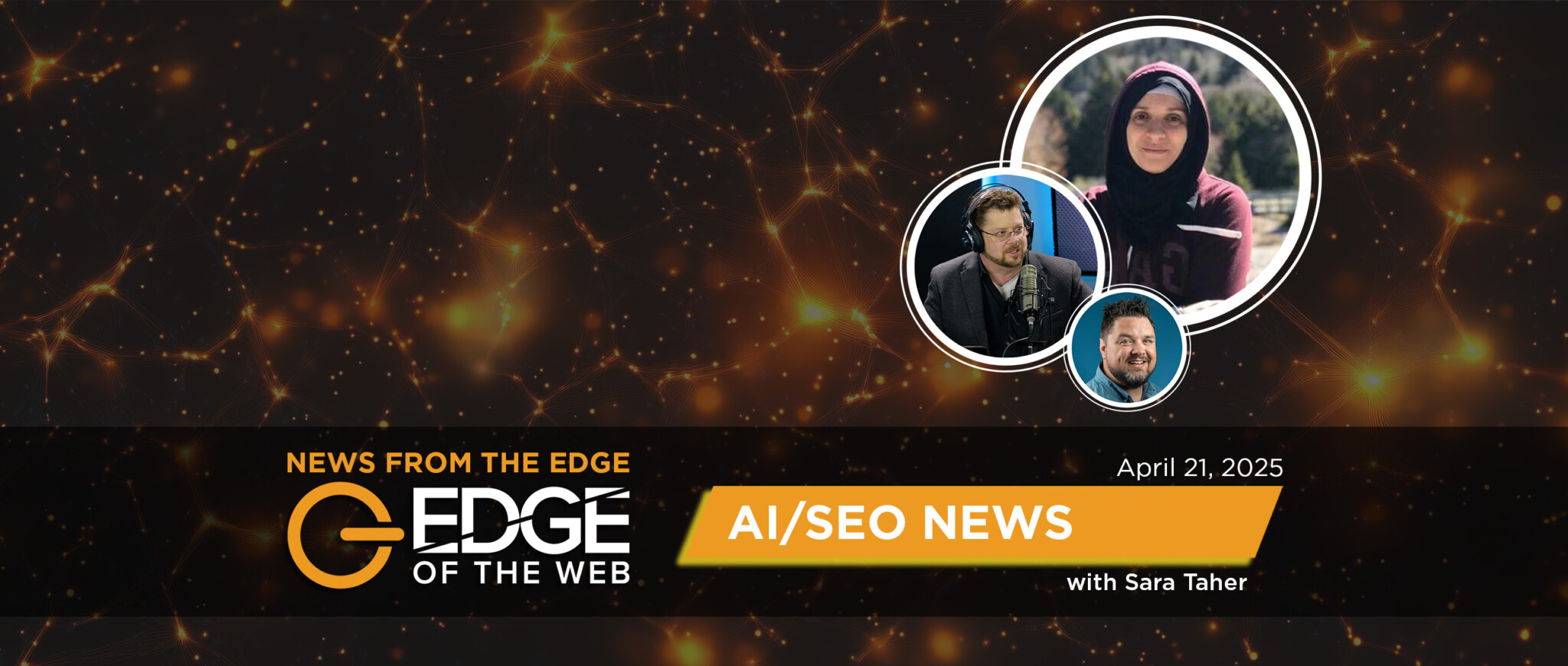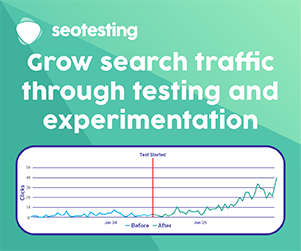There’s never a shortage of news when it comes to digital marketing, which is why we include a news roundup segment in each episode of the EDGE. The latest features host Erin Sparks and Creative Studio Producer Jacob Mann along with special guest Gary Illyes, Webmaster Trends Analyst at Google. Here’s the bonus news roundup from Episode 362 of the award-winning EDGE of the Web podcast:
Facebook Weighs Ban on Political Ads in the Days Leading into the US Presidential Election
From Andrew Hutchinson on SocialMediaToday we learn that Facebook Weighs Ban on Political Ads in the Days Leading into the US Presidential Election. Despite Facebook CEO Mark Zuckerberg repeatedly stating that he believes his company is ‘on the right track’ with its political content approach, it seems that it is now seriously reconsidering its stance, with Bloomberg reporting that The Social Network is currently weighing a possible ban on all election ads in the days leading into the 2020 US Presidential Election in November.
- Erin Sparks: Twitter banned political ads months ago, and now Facebook is considering its own limited ban on them in the run up to the November election. The blackout period would only for 72 hours before an election, but even this limited ban is getting a lot of pushback from politicians who have come to rely heavily on Facebook ads. And Republicans are somehow making it sound as if such a ban might somehow work in favor of the Democrats.
- Gary Illyes: I’m going to skate past this one because it’s not really my field and probably wouldn’t be smart for me to comment on it.
Google Discover Help Document Updated With E-A-T Mentions & More
According to Barry Schwartz on Search Engine Roundtable, Google Discover Help Document Updated With E-A-T Mentions & More. Google has updated the help document on Google Discover. It has been almost completely revamped but one of the more interesting areas of the update is the section added to E-A-T.
- Gary Illyes: This is going to be very helpful for publishers, especially for those who have yet to grasp how E-A-T can play a role in Discover (formerly known as Google Feed) just as it does in Search. After all, people want to find relevant, high-quality material in Discover just like they want in Search. Since what surfaces in Discover is coming from Google’s web and image indexes, of course E-A-T is applied to it as well. And it means you can use the Google Quality Raters Guidelines to improve E-A-T in your Discover.
- Erin Sparks: But E-A-T is not in and of itself a ranking factor. And even though it’s not a ranking factor, it’s still very important. And it helps to deter so many of the manipulative factors out there that get in the way of ensuring quality content. It’s about not spinning content. It makes everything more transparent.
- Gary Illyes: What’s interesting is that internally we’re not all that focused on E-A-T. It’s not something we talk about all the time internally. We have hundreds of algorithms that feed into rankings, but we don’t focus on E-A-T specifically. It’s for the Raters to be able to understand what we’re looking for in terms of content quality, and as such it can help publishers understand what makes for quality content.
CMOs maintain optimism for post-Covid marketing budgets despite fears, says Gartner
On MarketingTech, James Bourne reports on how CMOs maintain optimism for post-Covid marketing budgets despite fears, says Gartner. Marketers are adopting a ‘stoic’ attitude to their marketing budgets post-Covid-19, but it is an opinion not widely shared by their C-suite colleagues. That is the top line finding from the latest Gartner CMO Spend Survey, which found almost three quarters (73%) of CMOs expect the pandemic’s negative impact to be ‘short-lived.’
- Erin Sparks: CMOs seem to think things are going to bounce back very quickly.
- Gary Illyes: This is very interesting. We did our own survey of marketers who follow Google on Twitter. It was surprising to find out how many didn’t seem to be experiencing negative repercussions, and how many we’re actually getting more work even though there were doing fewer pitches. Businesses who needed to quickly ramp up their online presence needed help with that, and it was marketers who helped a lot. What will happen post-pandemic? Some number of the businesses who only went online because of the pandemic might realize they want to stay online, and some might even realize they don’t want to do the brick-and-mortar approach at all anymore. Just like a lot of people now working remotely might continue to work remotely even when the pandemic is over. The impacts of this pandemic are going to stay very fresh in our memories for a long time and will have a lasting impact on how people do things, whether it’s buying or working. The only real concern now about people working from home isn’t about productivity, it’s about data security depending on the nature of their work. That can be tricky because home networks are simply and typically not as secure as company networks.
Connect with Gary Illyes, Webmaster Trends Analyst at Google
Twitter: @methode (https://twitter.com/methode)
News from the Digital Marketing Industry Delivered to Your Inbox!
The EDGE newsletter is a great way to stay on top of trending digital marketing news right in your inbox! Go to EDGEofthewebradio.com and you’ll see the subscribe box at the very top of the page. It’s FREE, and we will never use your email for anything except sending you the newsletter. You can also sign up by texting the word “EDGETalk” to 22828, but not while you’re driving! Enjoy these digital nuggets of gold from the EDGE – your source for digital marketing news.



